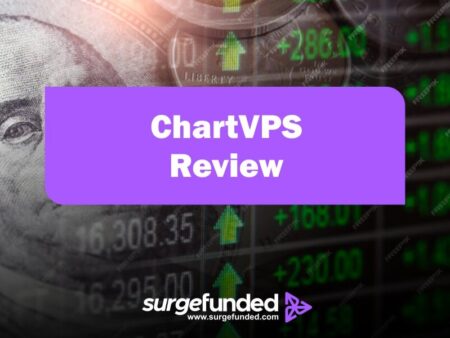Funded account management vs hedge fund trading are two popular strategies in the financial market. The trading and investment techniques used in the finance industry can range greatly depending on the goals, risk profiles, and organizational structure of various firms. Funded account management vs hedge fund trading both seek to make money in the financial markets, although their methods and ideologies are different. This article explores the subtleties of Funded account management vs hedge fund trading, contrasting its features, benefits, drawbacks, and appropriateness for various investor types.
Understanding Funded Account Management
Funded account management is a trading approach that involves traders overseeing accounts that have been financed by an investor or a prop firm. In this arrangement, the trader executes trades using the firm’s capital and is usually paid according to the profits made. With this strategy, traders may access large amounts of cash without having to risk their own money, freeing them up to concentrate on making profitable trades.
Features of Funded Account Management
- Funds Provision: The firm or investor provides traders with funds, lowering their own financial risk.
- Profit Sharing: To encourage performance, traders typically get a portion of the profits they make.
- Risk management: To safeguard their cash and guarantee sustainable trading practices, businesses frequently put in place stringent risk management procedures.
- Flexibility: Compared to typical investing jobs, traders may have greater freedom in selecting their trading methods.
Understanding Hedge Fund Trading
Hedge funds are pooled investment vehicles that manage money from accredited investors, such as high-net-worth individuals and institutional investors. They use a variety of tactics to generate large profits, frequently involving intricate financial tools and methods like leverage, short sales, and derivatives.
Features of Hedge Fund Trading
- Pooled Capital: Hedge funds enable diversified investments across a range of asset classes by pooling the money of several participants.
- Fee Structure: Known as the “two and twenty” model, hedge funds normally charge a management fee (usually approximately 2% of assets under management) and a performance fee (generally 20% of profits).
- Regulatory Oversight: Although hedge funds are more flexible than mutual funds in terms of their investment methods, they are nonetheless subject to regulatory oversight.
- Investment Techniques: From global macroeconomic plays to long/short equity, hedge funds can use a variety of techniques.
A Comparison of Funded Account Management and Hedge Fund Trading
Capital Source
- Funded Account Management: Firms capital
- Hedge Fund Trading: Pooled funds from several investors
Risk Profile
- Funded Account Management: Reduced individual risk for traders
- Hedge Fund Trading: Increased risk as a result of leveraged investments
Profit Structure
- Funded Account Management: Profit sharing model
- Hedge Fund Trading: Management and performance fees
Regulatory Environment
- Funded Account Management: Less regulation
- Hedge Fund Trading: Subject to regulatory oversight
Flexibility In Strategy
- Funded Account Management: More flexible for individual traders
- Hedge Fund Trading: Strategies dictated by fund managers
Investor Type
- Funded Account Management: Individual traders or firms
- Hedge Fund Trading: High-net-worth individuals and institutions
Focus On Returns
- Funded Account Management: Short-term trading profits
- Hedge Fund Trading: Long-term capital appreciation
Benefits Of Funded Account Management
- Decreased Financial Risk: Traders can make more assured decisions because they are not risking their own money.
- Incentives for Performance: The profit-sharing model synchronizes traders’ interests with those of the firm or investor.
- Access to Resources: The firm frequently gives traders access to cutting-edge trading platforms and tools.
- Development of Skills: Through mentoring and teamwork, working in a funded account can help traders improve their skills.
Drawbacks Associated With Funded Account Management
- Profit Sharing Lowers Earnings: Traders are required to split profits with the firm, which may restrict the potential for total earnings.
- Need to Perform: The need to make steady profits might cause tension and impulsive trading choices.
- Limited Control Over Funds Use: Traders may be subject to limitations on the methods they can use or the way they can use the firm’s funds.
Benefits of Hedge Fund Trading
- Opportunities for Diversification: By investing in a variety of assets, hedge funds can lower risk.
- Potential for Large Gains: Hedge funds’ aggressive tactics have the potential to provide investors with significant gains.
- Professional Management: Skilled fund managers use in-depth market research and analysis to influence their decisions.
Drawbacks Associated With Hedge Fund Trading
- High Fees: High fees is a drawback of hedge fund trading; over time, the fee structure may drastically lower investors’ net returns.
- Restricted Access for Retail Investors: Participation in hedge funds is sometimes restricted to accredited investors only.
- Reduced Liquidity: A lot of hedge funds have lock-up periods that prevent investors from taking their money out.
Suitability for Various Investors
A person’s financial objectives, risk tolerance, and level of investment expertise all play a significant role in their decision between funded account management and hedge fund trading.
Funded Account Management Is Suitable For;
- Aspiring traders who wish to obtain expertise without jeopardizing their personal funds
- Those looking for a controlled setting with assistance from knowledgeable experts.
- Those that favor short-term trading tactics that aim to generate gains right now.
Hedge Fund Trading is Suitable For;
- High-net-worth people seeking professionally managed, diversified investment opportunities.
- Investors that are prepared to pay more in exchange for possibly larger profits.
- Those who are at ease with limited money and have a long investment horizon.
In conclusion
Funded account management and hedge fund trading both provide distinctive avenues for making money in the financial markets. Prior to choosing one strategy over another, prospective participants should thoroughly evaluate their unique situation as each approach has pros and cons.
Funded account management offers traders who want to improve their abilities while lowering their own financial risk a great chance. Hedge funds, on the other hand, provide high-net-worth individuals looking for expert management of pooled assets with sophisticated investing techniques.
In the end, being aware of these two different strategies enables traders and investors to make well-informed choices that complement their risk tolerance and financial objectives. Personal preferences on risk exposure, investment style, and desired amount of trading involvement will determine whether a person selects hedge fund trading or funded account management.
Frequently Asked Questions
1. What Are The Features of Funded Account Management
- Funds Provision: The firm or investor provides traders with funds, lowering their own financial risk.
- Profit Sharing: To encourage performance, traders typically get a portion of the profits they make.
- Risk management: To safeguard their cash and guarantee sustainable trading practices, businesses frequently put in place stringent risk management procedures.
- Flexibility: Compared to typical investing jobs, traders may have greater freedom in selecting their trading methods.
2. What Are The Features of Hedge Fund Trading
- Pooled Capital: Hedge funds enable diversified investments across a range of asset classes by pooling the money of several participants.
- Fee Structure: Known as the “two and twenty” model, hedge funds normally charge a management fee (usually approximately 2% of assets under management) and a performance fee (generally 20% of profits).
- Regulatory Oversight: Although hedge funds are more flexible than mutual funds in terms of their investment methods, they are nonetheless subject to regulatory oversight.
- Investment Techniques: From global macroeconomic plays to long/short equity, hedge funds can use a variety of techniques.
3. What Are The Differences Between Funded Account Management and Hedge Fund Trading
Capital Source
- Funded Account Management: Firms capital
- Hedge Fund Trading: Pooled funds from several investors
Risk Profile
- Funded Account Management: Reduced individual risk for traders
- Hedge Fund Trading: Increased risk as a result of leveraged investments
Profit Structure
- Funded Account Management: Profit sharing model
- Hedge Fund Trading: Management and performance fees
Regulatory Environment
- Funded Account Management: Less regulation
- Hedge Fund Trading: Subject to regulatory oversight
Flexibility In Strategy
- Funded Account Management: More flexible for individual traders
- Hedge Fund Trading: Strategies dictated by fund managers
Investor Type
- Funded Account Management: Individual traders or firms
- Hedge Fund Trading: High-net-worth individuals and institutions
Focus On Returns
- Funded Account Management: Short-term trading profits
- Hedge Fund Trading: Long-term capital appreciation


















